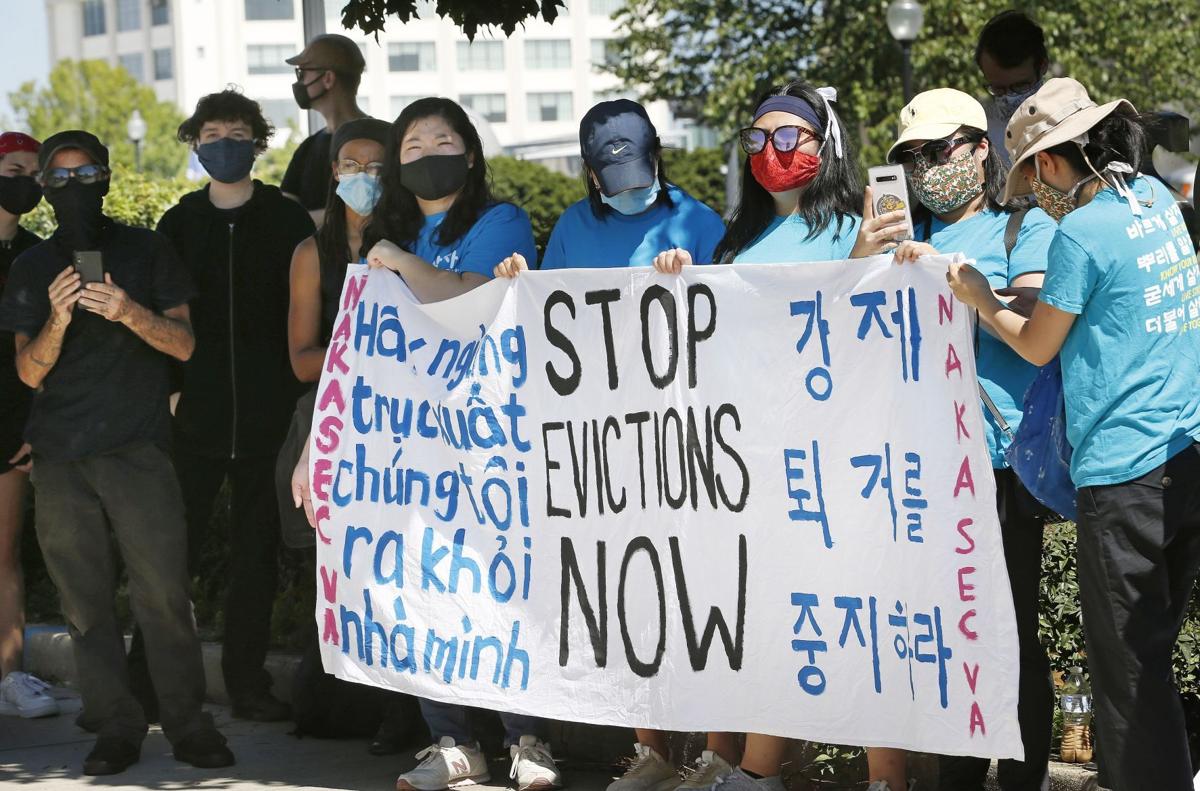By Mark Robinson, Richmond Times-Dispatch
Days after letting federal protections expire, President Joe Biden announced a new temporary moratorium on evictions for nonpayment of rent for renters living in communities where coronavirus cases are surging.
In Virginia, tenant advocates and attorneys who aid families facing eviction said the 60-day federal order, lasting through Oct. 3, would buy time for tenants to secure rental relief through a state-run program flush with federal aid. However, all cautioned the order was not a cure-all, nor a substitute for stronger state protections for renters facing eviction.
“All evictions are a tragedy any time, but it would be even a bigger tragedy because there’s $700 million in state rental assistance,” said Victoria Horrock, a housing attorney with the Legal Aid Justice Center.
As of mid-July, Virginia had distributed $311.8 million to aid 48,500 households that had fallen behind on rent. But thousands of others with pending or incomplete applications remained without help they likely qualify for, some with eviction cases or judgments already hanging over their heads.
The new order, announced Tuesday evening, came as pressure built from Biden’s fellow Democrats, progressive lawmakers and national and local tenant advocacy groups. As states have struggled to distribute federal aid quickly, tenant advocates fear mass evictions will unfold across the country, spurring a new wave of homelessness for families who have fallen behind on rent during the pandemic.
While Horrock and other advocates said they were thankful the federal government had taken action, they stressed the new order, like the original one, would not automatically protect tenants from an eviction.
The order applies to renters in cities and counties where virus transmission is high or substantial, according to the Centers for Disease Control and Prevention order.
In central Virginia, the localities currently meeting that threshold are Richmond, Petersburg, Hopewell and Charlottesville, as well as the counties of Chesterfield, Henrico, Hanover, Goochland, Albemarle, Dinwiddie, Nelson, New Kent, Prince George and Surry, according to information disseminated by the Central Virginia Legal Aid Society.
Currently, the protections would not cover renters facing eviction in Charles City, Louisa, Powhatan or Fluvanna counties in central Virginia. However, if transmission rates in those localities meet the CDC criteria, renters there would gain protections immediately under the order.
On the other hand, if transmission falls to moderate or low levels for 14 consecutive days in localities currently covered by the order, renters in those areas would no longer qualify for the federal protection. The CDC has set up an online tracker for reference.
The shifting nature of the federal order will likely make it difficult for families in crisis to keep track. Given that, Horrock said it is crucial for the Virginia General Assembly to reinstate certain state protections during its special session.
Those include a requirement that landlords apply for rental assistance on behalf of their tenants before pursuing an eviction and also notify them of assistance programs that are available. Gov. Ralph Northam proposed re-enacting the protections in his budget proposal, a month after they lapsed at the end of Virginia’s state of emergency order in June.
Any mechanism that helps speed the process of settling back rent balances will help avert a worst case scenario, said Ralph Hodge, a pastor at 2nd Baptist Church on Broad Rock Boulevard in South Richmond and a past co-president of Richmonders Involved to Strengthen our Communities. The faith-based advocacy coalition has lobbied for anti-eviction measures and affordable housing in the region.
“It’s not an issue of resources, it’s really an issue of access and ease of access,” Hodge said. “That’s what’s been frustrating to me, I’ll tell people to call the [rent relief] number and they’ll wait for months even after they’ve submitted all their paperwork.”
Last month, Virginia awarded a $3.5 million contract to Housing Opportunities Made Equal of Virginia and legal aid organizations across the state to lead outreach and provide application assistance for the program. The initiative is meant to reduce barriers, specifically for economically disadvantaged tenants, to navigate the program and secure the help they need.
View the original story here.






